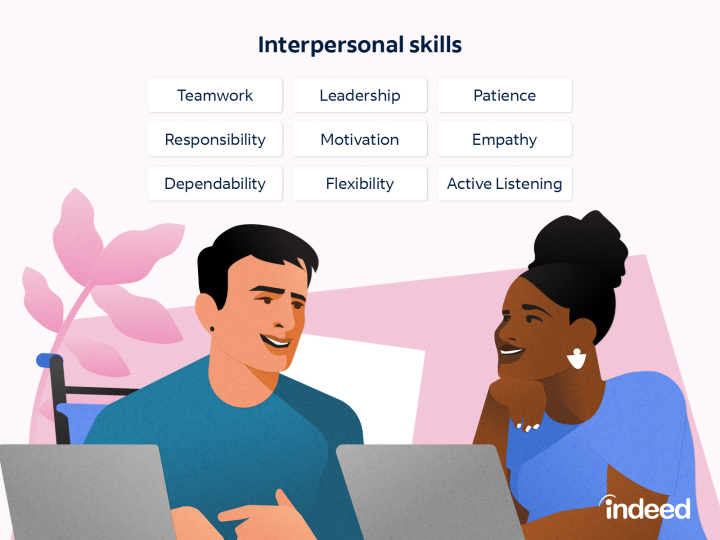Guide to Effective Communication: Enhance Your Interpersonal Skills
Introduction:
Effective communication is a vital skill that influences every aspect of our personal and professional lives. Whether interacting with colleagues, clients, friends, or family, strong interpersonal communication skills can enhance relationships, resolve conflicts, and foster understanding. This comprehensive guide will provide you with valuable insights and practical tips to improve your communication skills, empowering you to communicate effectively and build meaningful connections.
Active Listening:
Active listening is the foundation of effective communication. When engaging in conversations, focus on fully understanding the speaker’s message rather than formulating your response. Maintain eye contact, nod to show your attentiveness, and avoid interrupting. Ask clarifying questions to ensure you grasp the speaker’s intent. By actively listening, you demonstrate respect and create a conducive environment for open dialogue.
:max_bytes(150000):strip_icc()/active-listening-skills-with-examples-2059684-ct-edit-b374ca3a973b466283314e6ee3ae7b1a.jpg)
Practice Empathy:
Empathy plays a crucial role in interpersonal communication. Put yourself in the other person’s shoes and strive to understand their perspective and emotions. Acknowledge their feelings and validate their experiences. Respond with empathy, showing genuine concern and compassion. By empathizing, you build rapport and foster trust, paving the way for effective communication and meaningful connections.
Be Mindful of Non-Verbal Communication:
Non-verbal cues such as facial expressions, body language, and tone of voice significantly impact communication. Pay attention to your non-verbal signals and ensure they align with your intended message. Maintain good posture, make eye contact, and use appropriate gestures to convey your engagement. Be mindful of your tone, speaking clearly and with confidence. By mastering non-verbal communication, you enhance the effectiveness and clarity of your message.
Choose Your Words Wisely:
The words you choose have the power to influence the outcome of a conversation. Use clear and concise language to convey your thoughts effectively. Tailor your vocabulary and tone to suit the situation and your audience. Avoid jargon or technical terms when speaking to those unfamiliar with the subject. Practice articulating your ideas to ensure they are easily understood by others, promoting effective communication and avoiding misunderstandings.

Develop Conflict Resolution Skills:
Conflicts are inevitable in any relationship or workplace. Developing effective conflict resolution skills is essential for maintaining healthy communication. Approach conflicts with an open mind and a willingness to find a resolution. Listen actively to understand the concerns of all parties involved. Seek common ground, explore alternative solutions, and be willing to compromise. By addressing conflicts constructively, you can foster understanding and strengthen relationships.
Adapt to Different Communication Styles:
Not everyone communicates in the same way. Adapt your communication style to connect with different individuals effectively. Some people prefer direct and concise communication, while others appreciate a more conversational approach. Observe and adjust your communication style based on the personality, cultural background, and preferences of those you interact with. Adapting to different communication styles promotes effective understanding and rapport building.
Use Constructive Feedback:
Constructive feedback is a valuable tool for personal and professional growth. When providing feedback, focus on specific behaviors or actions rather than making personal attacks. Be specific, balanced, and provide actionable suggestions for improvement. Similarly, when receiving feedback, listen attentively, seek clarification if needed, and approach it with an open mind. Incorporating constructive feedback into your communication practices fosters continuous improvement.

Practice Effective Written Communication:
Effective communication extends beyond face-to-face interactions. Develop strong written communication skills for emails, reports, and other written correspondence. Use clear and concise language, organize your thoughts logically, and proofread your writing for grammar and clarity. Tailor your writing style to the intended audience, ensuring your message is conveyed accurately and professionally.
Conclusion:
Effective communication is a skill that can be honed with practice and mindfulness. By incorporating the strategies outlined in this guide, such as active listening, empathy, mindful non-verbal communication, and conflict resolution, you can enhance your interpersonal skills and build stronger connections. Remember, effective communication is a continuous learning process, so take the time to reflect on your interactions, seek feedback, and adapt your approach accordingly. With dedication and effort, you can become a skilled communicator who fosters understanding, collaboration, and meaningful relationships in all areas of life.
